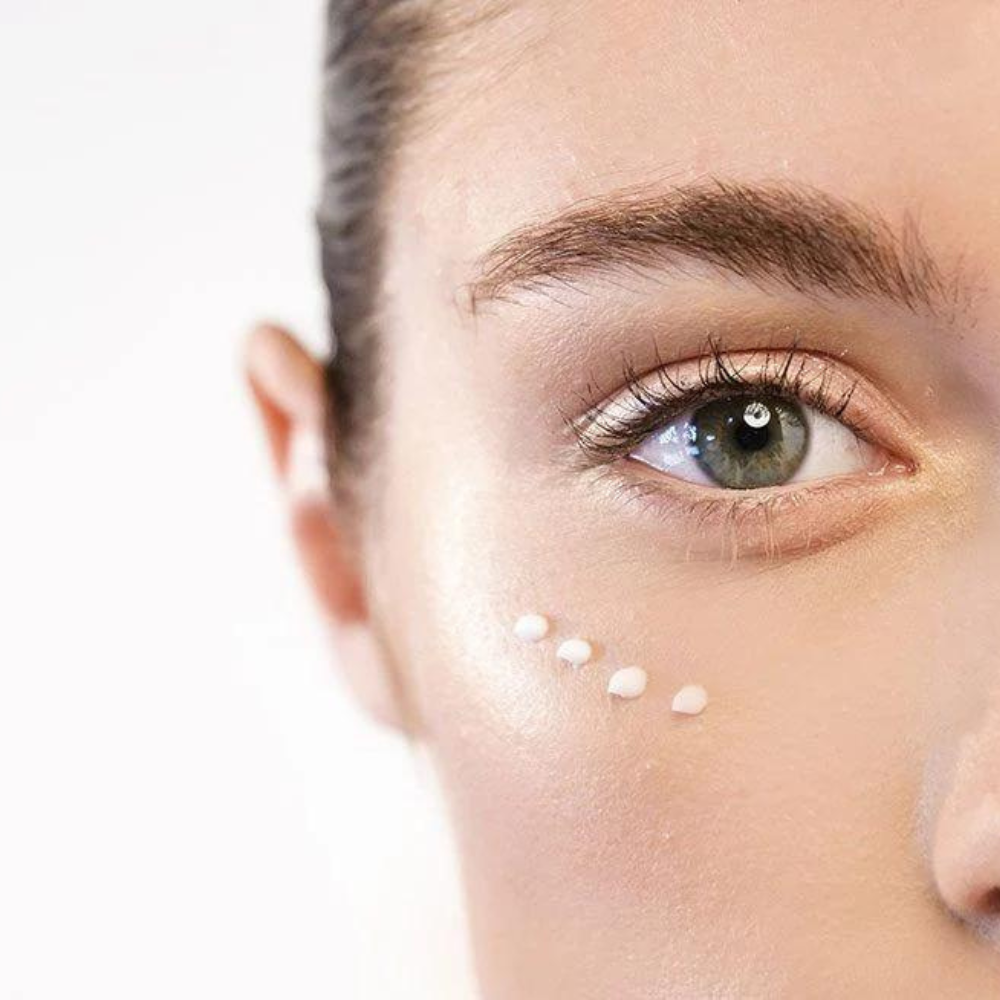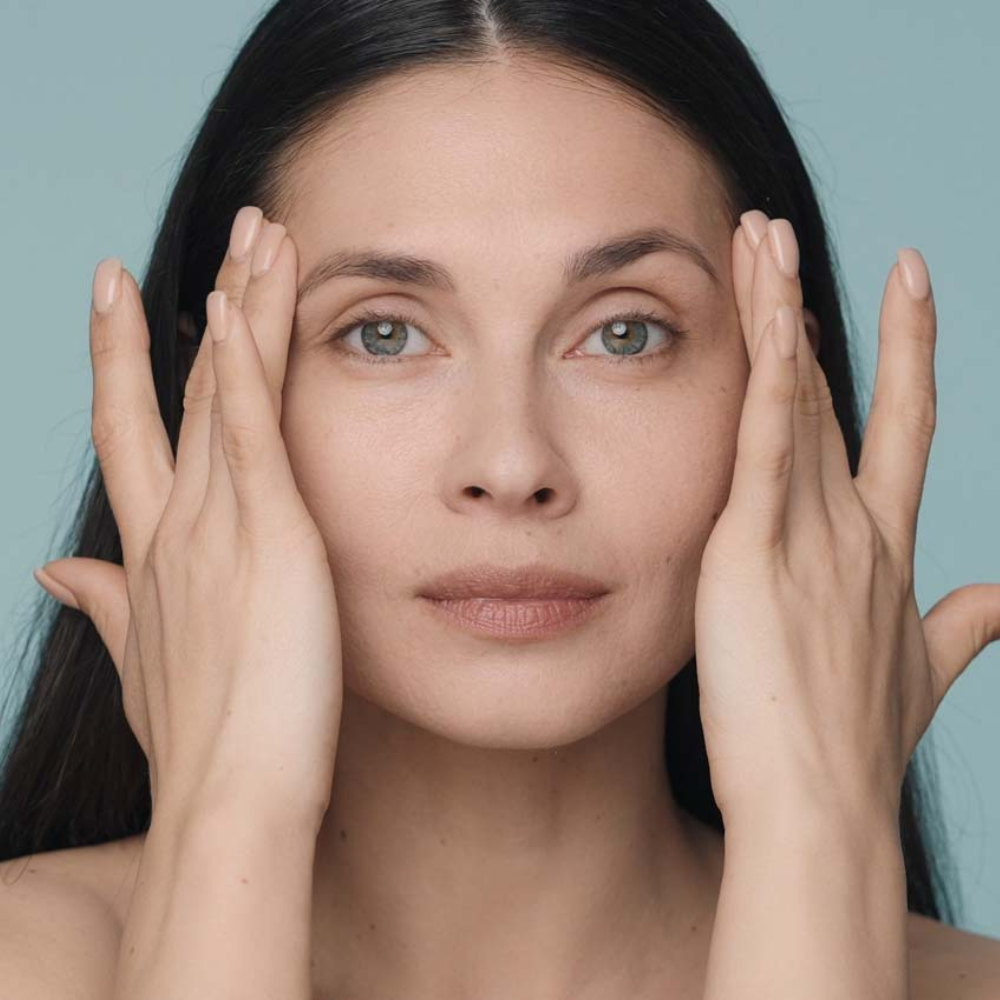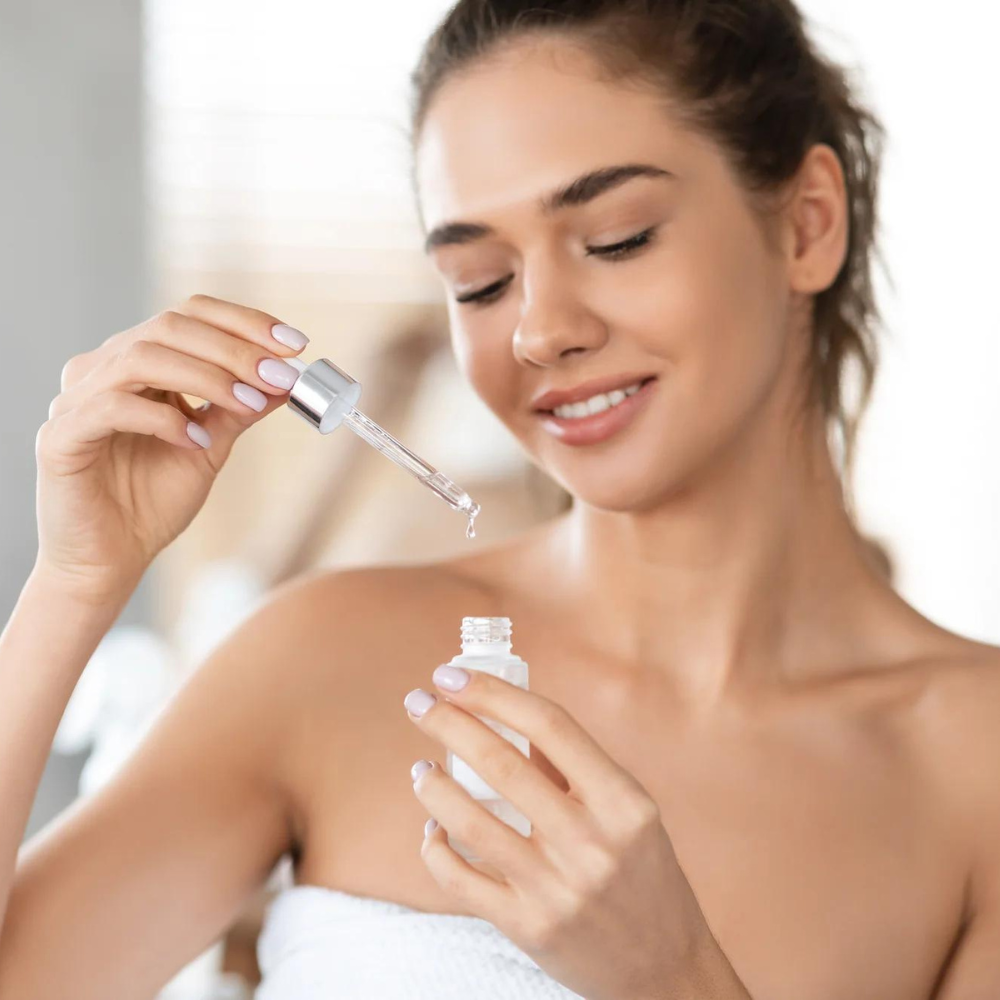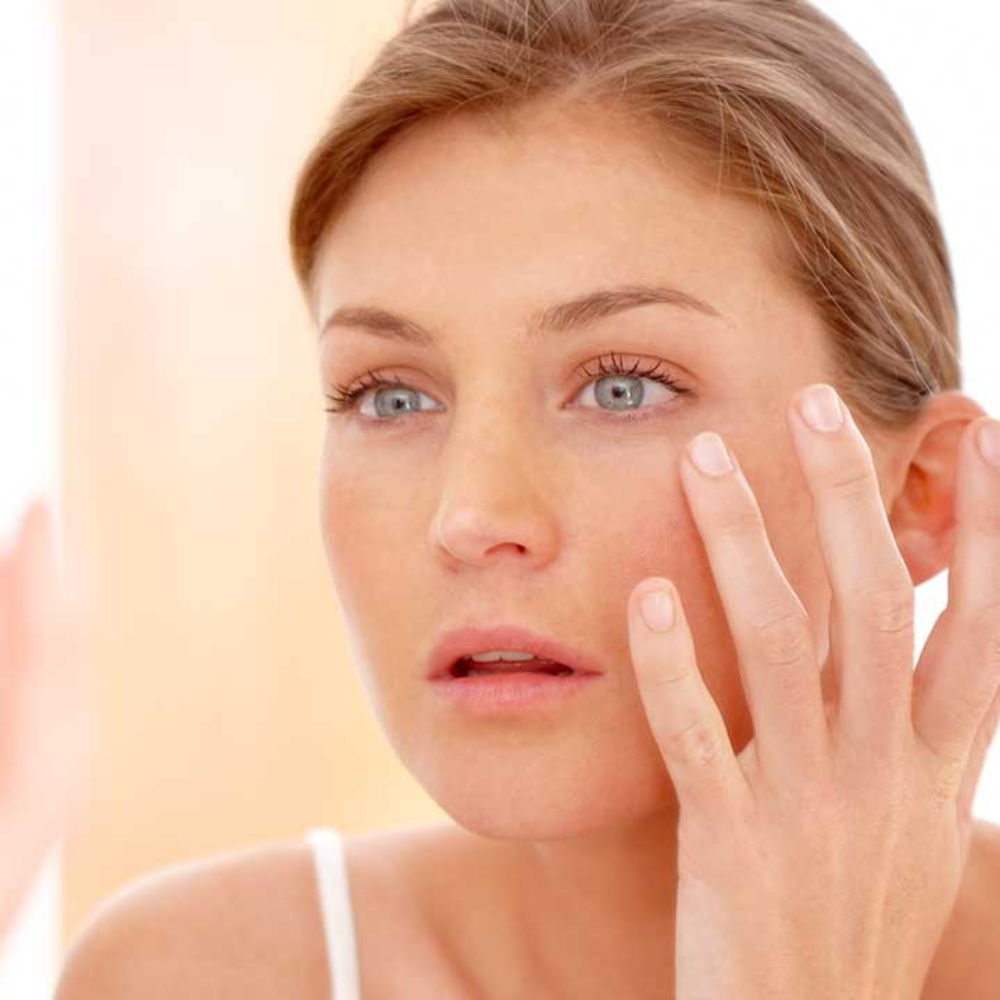Eye creams and facial creams are both popular skincare products used by people all over the world. However, many often wonder if eye cream can be used on the face or vice versa. Both products have similar benefits such as hydrating and nourishing the skin, reducing fine lines and wrinkles, and improving overall skin texture.
This has led to confusion about whether it is necessary to use two separate products or if one product can be used for both areas.
In this article, we delve into the question: Is it safe or advisable to use eye cream on your face? With the beauty industry buzzing about multi-purpose skincare products, we navigate through the science and practicality of extending the benefits of eye cream to the broader facial canvas
What is Eye Cream?

Eye cream is a specialized skincare product that is specifically formulated for the delicate skin around the eyes. This area is prone to dryness, fine lines, and wrinkles due to its thin and sensitive nature. Eye creams are usually thicker in texture compared to facial creams and contain active ingredients that target specific concerns like dark circles, puffiness, and crow's feet.
Eye creams often contain antioxidants, peptides, retinol, hyaluronic acid, and caffeine. These ingredients work together to improve skin elasticity, reduce inflammation, and promote collagen production. Due to their targeted formulation, eye creams are considered essential for maintaining youthful-looking skin and preventing premature aging. However, many people wonder if using eye cream on the face would have similar benefits.
Plus, eye creams are also designed to be non-irritating and gentle on the eyes as they do not contain fragrances or other harsh ingredients that could cause irritation.
Can I Use Eye Cream on My Face?

Yes, you can use eye cream on your face. However, it may not be the most effective option for your overall facial skincare routine. As mentioned earlier, eye creams are specially formulated for the delicate skin around the eyes and contain active ingredients that target specific concerns.
On the other hand, facial creams are designed to cater to the needs of the entire face and have a lighter texture that is suitable for daily use. They often contain ingredients like vitamin C, glycolic acid, and ceramides that provide broad-spectrum benefits for all skin types.
While using eye cream on the face may not necessarily harm your skin, it may not provide the same level of results as a facial cream would. Additionally, since eye creams tend to be more expensive than facial creams, using them on your entire face may not be cost-effective in the long run.
Plus, some ingredients in eye creams may cause irritation or clog pores when used on the face. Therefore, it is best to stick to using specific products for their intended purposes.
Risk of Using Eye Cream on the Face
While using eye cream on your face may not necessarily cause harm, it could potentially lead to unwanted side effects. As mentioned earlier, some ingredients in eye creams may irritate or clog pores when used on the face, leading to breakouts and other skin issues.
Moreover, since eye creams are specifically designed for the delicate eye area, they often have a thicker consistency that may feel heavy or greasy when applied to the entire face. This could potentially lead to an uncomfortable feeling and interfere with makeup application.
Additionally, if you have sensitive skin or any underlying skin conditions, using eye cream on your face may exacerbate the issue. It is always best to consult with a dermatologist before trying out any new skincare product or using products in ways not intended by the manufacturer.
Also, keep in mind that eye creams are generally more expensive than facial creams, so using them on your face may not be the most cost-effective option. As always, it is essential to read and follow product labels and instructions for optimal results.
Is Face Serum a Better Alternative?
If you are looking for an alternative to using eye cream on your face, facial serums may be a better option. Like eye creams, facial serums are also targeted skincare products that contain active ingredients to address specific skin concerns. They have a lighter texture compared to creams and can penetrate deeper into the skin for maximum efficacy.
Facial serums often have a higher concentration of active ingredients such as vitamin C, hyaluronic acid, and retinol, making them more potent in delivering results. They are also suitable for all skin types and can be used as a standalone product or incorporated into your existing skincare routine.
However, like any other skincare product, it is still essential to do a patch test before using facial serums on your face. Some ingredients may cause irritation or allergic reactions, so it is always best to err on the side of caution and consult with a dermatologist if needed.
Types Of Face Serum That Are Good for the Eye Area

While there are no specific types of face serum that are designated for use on the eye area, some ingredients may be more suitable for this delicate skin. Here are a few examples of face serums that may be beneficial for the eye area:
Vitamin C Serum
Vitamin C is a potent antioxidant that helps to brighten and even out skin tone. It also aids in collagen production, making it a great ingredient to help reduce the appearance of fine lines and wrinkles around the eyes. When used as a serum, vitamin C can provide targeted benefits for the delicate eye area without being too harsh.
Plus, vitamin C serums often contain other nourishing ingredients like hyaluronic acid and ferulic acid that help hydrate and protect the skin. This makes it a great option for those with dry or dehydrated under-eye areas.
Bakuchiol Serum
Bakuchiol is a natural alternative to retinol and has been shown to have similar anti-aging benefits without the potential irritation. It helps to stimulate collagen production and improve skin elasticity, making it beneficial for reducing fine lines and wrinkles around the eyes.
Additionally, bakuchiol also has antibacterial properties that can help reduce inflammation and prevent breakouts. This makes it a suitable option for those with oily or acne-prone skin around the eyes.
Hyaluronic Acid Serum
Hyaluronic acid is a hydrating powerhouse that can hold up to 1000 times its weight in water, making it an excellent ingredient for plumping and moisturizing the delicate eye area. As we age, our skin naturally produces less hyaluronic acid, leading to dryness and dullness. Using a hyaluronic acid serum can help replenish this essential molecule and improve the overall appearance of the under-eye area.
Moreover, hyaluronic acid is a gentle ingredient that is suitable for all skin types, making it a safe option for use around the eyes. It can also be used in conjunction with other serums for added hydration and nourishment.
So choose your face serum carefully and enjoy the benefits of using a targeted skincare product that addresses your specific needs. Remember to always patch test and consult with a dermatologist if you experience any adverse reactions.
Tips for A Successful Skincare Routine

Creating a successful skincare routine takes time and effort, but the results are well worth it. Here are some tips to help you make the most out of your skincare routine:
- Understand Your Skin Type: Knowing your skin type is crucial in choosing the right products for your skin. Whether you have oily, dry, or combination skin, selecting products that cater to your specific needs can make all the difference.
- Read Product Labels: The ingredients used in skincare products can vary greatly and may affect how they work on your skin. Make sure to read product labels and research any ingredients you are unfamiliar with.
- Be Consistent: For best results, it is essential to use skincare products consistently and as directed. Skipping days or using products sporadically may not provide the desired effects.
- Adjust According to Season: Our skin's needs can change with the seasons, so it is crucial to adjust your skincare routine accordingly. For example, in colder months, you may need more hydration, while in warmer months, a lighter routine may be suitable.
- Listen to Your Skin: Pay attention to how your skin responds to different products and adjust accordingly. If you experience irritation or adverse reactions, stop using the product immediately.
Following these tips can help you create a personalized skincare routine that caters to your specific needs and leads to healthier, glowing skin. Remember, consistency is key to achieving and maintaining healthy skin.
FAQs
Can I use eye cream as a facial moisturizer?
Yes, you can use eye cream as a facial moisturizer. However, eye creams are specifically formulated for the delicate, thin skin around the eyes. While they can provide some hydration, they may not be as effective as facial moisturizers designed for the broader needs of your entire face.
Is it safe to apply under eye cream to other parts of my face?
It is generally safe to apply under-eye cream to other parts of your face. Under-eye creams are designed for fragile skin and can be gentle on other areas. However, for the best results, it's advisable to use products specifically formulated for your entire face, as they cater to different skin care needs.
What do board-certified dermatologists recommend regarding using eye cream on the face?
Board-certified dermatologists typically recommend using products formulated for specific areas. While using an eye cream on your face won't harm your skin, it might not provide the same benefits as using face creams designed for overall facial hydration and care.
Are moisturizing eye creams effective for the whole face?
Moisturizing eye creams are effective for the delicate and thin skin around the eyes but may not be sufficient for the entire face. These creams are often richer and formulated to target specific under-eye issues. For a comprehensive skincare routine, it's best to use face creams that address the needs of your whole face.
Can using an eye cream on my face cause any skin issues?
Using an eye cream on your face is unlikely to cause skin issues, as these products are formulated for sensitive, fragile skin. However, they may not provide enough moisture for areas with different skin textures and needs. It's important to monitor how your skin responds and adjust your skincare routine accordingly.
How should I incorporate eye cream into my skin care routine?
Incorporate eye cream into your skincare routine by applying it to the under-eye area after cleansing and before using facial moisturizers. This ensures that the delicate skin around your eyes receives targeted care while the rest of your face benefits from products designed for broader hydration and protection.
Conclusion
In conclusion, while it may seem convenient to use eye cream on the face, it is not recommended or necessary for optimal skincare results. Eye creams and facial creams are formulated for different purposes and using them interchangeably may not provide the desired outcomes.
Additionally, there is also a risk of potential side effects when using eye cream on the face, so it is best to stick to products meant for their intended use. In case you have any concerns or specific skin issues, consulting with a board certified dermatologist can help guide you in choosing the right skincare products suitable for your needs.
So next time you're tempted to use your eye cream on your face or vice versa, remember the differences between the two and make an informed decision for your skin's health. With proper knowledge and care, you can achieve healthy and glowing skin that makes you feel confident and beautiful.
Subscribe to our email newsletter and unlock access to members-only content and exclusive updates.

Comments